Unfair policing of opposition making ordinary citizens suffer too

Now that the dust has settled in Dhaka following the peaceful and orderly staging of BNP's mass rally, we need some answers to a few simple questions. A rally that was expected to last a maximum of six hours has cost more than 10 million Dhaka residents anything between a day and four days (varying on locations) of their normal daily routines, including office work, children's coaching, medical appointments, shopping, leisure and other activities.
The images of anti-riot armoured vehicles, water cannons, and AK-47 wielding special forces patrolling certain city streets resembled a war zone and not a democratic square. The worry and concerns expressed, and issuance of advisories by foreign missions in Dhaka to their own nationals, therefore, were not that unwarranted, especially after some ministers expressed annoyance at and issued veiled warnings to foreign diplomats.
The BNP announced its series of rallies in 10 divisional venues on September 27, and according to the now-imprisoned Secretary General of the party, Mirza Fakhrul Islam Alamgir, it sought permission from the Dhaka Metropolitan Police (DMP) Commissioner to hold the Dhaka rally at Nayapaltan on November 13. Since the BNP's first divisional rally in Chittagong on October 12, it became clear that the opposition party was on the path of organisational revival.
The ruling party, Awami League, seemed to have realised this, but adopted the wrong strategy. It thought threats, harassment and creating overt and covert barriers to these rallies would discourage opposition supporters. They were likely utterly surprised to find that none of those overused tactics were effective anymore. BNP supporters showed remarkable defiance and turned up to display their party's strength.
The media has reported on reprisals for attending the rally, thereby showing a disturbing trend of not only preventing the opposition from organising, but of punishing them afterwards too. Shutting down of businesses and not allowing them to reopen in Barishal's Agailjhara upazila is one such example. Weeks before the Dhaka rally, it became clear that the more preventative measures put in place by the administration, the more defiant the BNP grassroots became. It is, therefore, perplexing to understand the rationale behind the administrative actions (and inaction) over BNP's application to hold the rally at Nayapaltan, in front of its central office.

One may question the judiciousness of the DMP chief, who had previously granted permission for at least half a dozen rallies at Nayapaltan that had either fully or partially stopped traffic flow in surrounding areas, but kept the BNP's application for the December 10 rally hanging. His refusal came only after the ruling party's pronouncement that BNP would have to move to Suhrawardy Udyan. There's no dispute about the authority of the DMP chief in granting and cancelling such permissions, based on security and safety assessments. Had there been any credible intelligence about possible subversion or breakdown of law and order, he could withdraw such permits at any time.
It was even more intriguing that until the ruling party directed its student wing Chhatra League to bring forward its annual conference, Suhrawardy Uddyan was not available for organising a grand rally on December 10. Does this not raise suspicions of an unfair liaison between the ruling party, administration and police? The right to assembly is a fundamental right and denying the opposition such rights, even under instructions from any superior authority, contravenes the constitution.
There are too many questions about the policing of the BNP rally in Dhaka, although the bungled process of granting permission for the event is at its core. Media reports suggest the Detective Branch (DB) chief was in the driving seat, instead of the DMP supremo, in negotiating with the BNP leadership to settle on an alternative venue.
The same branch of the police picked up Mirza Fakhrul and another BNP senior leader Mirza Abbas in the dead of the night from their homes, thereby setting a new precedent of taking top level politicians to the DB office for quizzing based on suspicions. In legal lexicon, this is called a "fishing expedition", where suspects are taken into custody without proof or evidence of wrongdoing. Had there been any solid evidence, they would have been arrested and produced before the court. I tried to research another example of a politician being taken to the DB office for interrogations like this in the last 51 years of our independence – without any success.
The reason given for the sudden raid at the BNP central office – which led to the shocking loss of a life, dozens of injuries, hundreds of arrests and hundreds sued in a number of cases – has been disputed by the BNP. Their version of events can't be discarded so easily. We need an independent, credible and transparent investigation, and the call for such a probe has also come from the US ambassador.
It has long been alleged that police have become partisan and regularly overlook or side with the wrongdoings of those who belong to the party in power. The policing of BNP's Dhaka rally has once again exposed the stark contrast – BNP is denied space on the streets in Dhaka, but the AL and its organisations set up dozens of pandals across the capital to hold mini-rallies on the same day. While the police didn't allow anybody near the BNP central office, AL workers cooked food in a makeshift kitchen in front of their central office under their watchful eyes.
The policing in the run up to the rally was especially troubling as they restricted freedom of movement, indiscriminately frisked passengers and walkers, and engaged in unauthorised and wholesale breach of privacy by forcing people to handover their mobile phones and show personal messages and images. These are clear violations of the constitution and Supreme Court directives.
The random searches of mobile phones and quizzing of passersby were not limited to the police force, but done by members of Chhatra League, too. Why didn't the police stop such vigilantism? If the ruling party outfits have the right to form vigilante groups, would that not encourage similar formations in the opposition? These questions are crucial for the future of our democracy and rule of law, and should not be ignored.
Kamal Ahmed is an independent journalist. His Twitter handle is @ahmedka1

 For all latest news, follow The Daily Star's Google News channel.
For all latest news, follow The Daily Star's Google News channel. 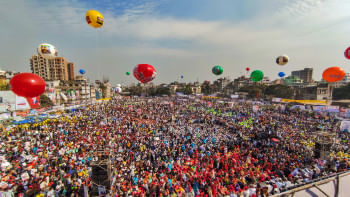
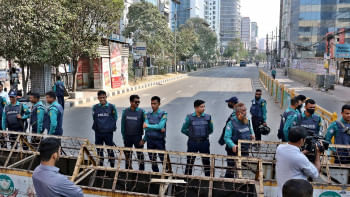


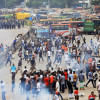
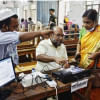
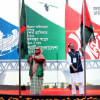
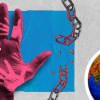
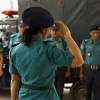


Comments